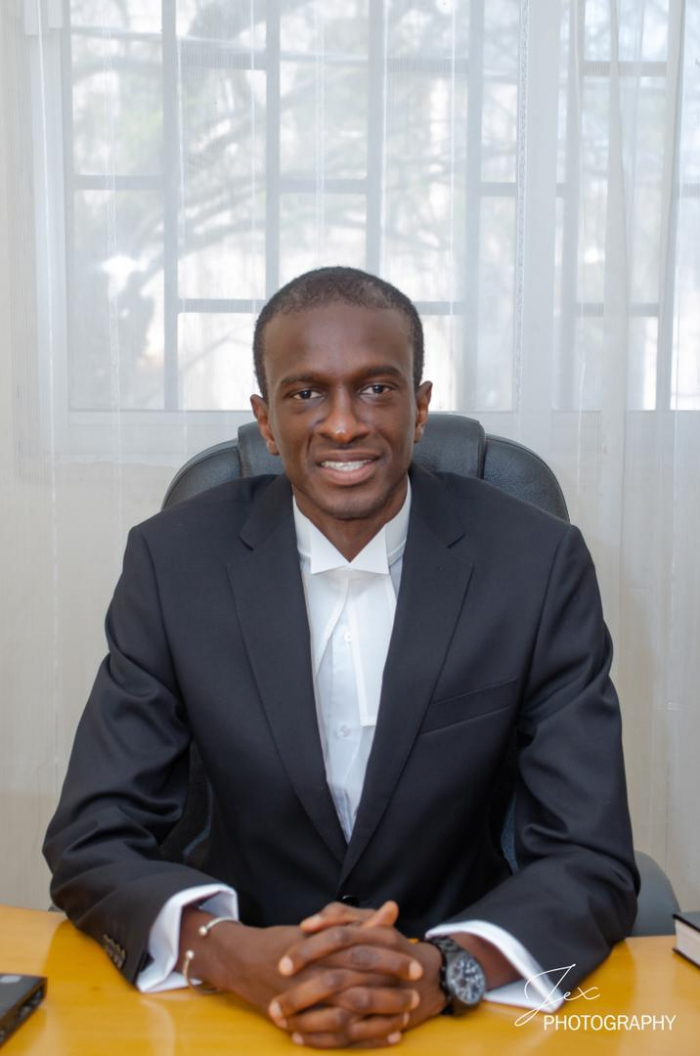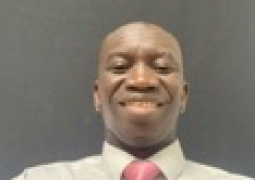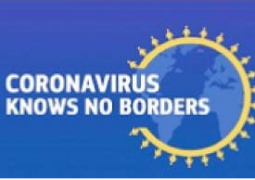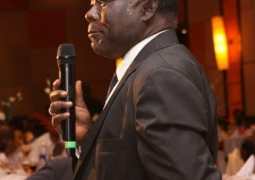
Malick H.B Jallow is a shining practitioner in the Gambia's Legal fraternity. Lawyer Jallow has made a name for himself in the Gambia's legal system due to his hard work, commitment, and dedication to duty especially in advocating for the rights of the people in society.
He came to prominence due to his professionalism, understanding of the law and his style of handling high profile cases with due diligence and professionalism. Lawyer Jallow is no doubt among the legal practitioners, who are strong pillars of the Gambia's legal fraternity in advocating for equality, justice, and respect for the rule of law.
Besides his job as a private legal practitioner, Lawyer Malick H.B Jallow is also a Lecturer at the faculty Law at the University of the Gambia. Mr. Jallow also serve as Legal Consultant for the European Union and the United Nations and others on issues pertaining to access to justice, human rights and the rule of law. He is Founder and President of the Malick Jallow Foundation for Children, a chariitable organisation.
Previously, Mr. Jallow worked with the United Nations Special Court for Sierra Leone, the International Criminal Court, the United Nations Development Programme, the Ministry of Justice of the Gambia and the Institute for Human Rights and Development in Africa, amongst others. He is the author of several publications pertaining to Human Rights,rule of law and access to justice
Below is the excerpt of the full interview he had with Gambian journalist based in Germany Assan Sallah.
- Who is Malick H.B. Jallow?
I am a Lawyer, Jurist and Human Rights Advocate.
- Tell me about your educational background?
I read law at Holborn College (UK), Buckingham University (U.K) and Kenya School of Law (Kenya).
- What about your work experience?
I started my legal career as a legal assistant with the United Nations Special Court for Sierra-Leone in 2007.I believe I was 22years old then. The court is perhaps best remembered for trial and conviction of Charles Taylor for war crimes and crimes against humanity. During my time there I worked directly under the President of the Court, Honorable Justice Renate Winter from Austria and later as a Legal Assistant to the Defence team for Morris Kallon, one of the indictees before the court. I also had a stint with the International Criminal Court(the hague) as a European Union Fellow,were I worked with the office of public counsel for victims and the immediate office of the registrar. The main focus of my work at the ICC was on victims’ rights and I specifically worked on the Jean Pierre Bemba case, former vice president of Congo, from a victim’s rights perspective and authored a research paper on holding military commanders accountable for serious international crimes. I was fortunate to have a good mentor at the ICC in the person of Justice Silvana Arbia, then Registrar of the court and subsequently a Judge in his native Italy. Thereafter I worked with the Institute for Human Rights and Development in Africa (IHRDA) as well as the Attorney Generals Chambers, Ministry of Justice. I also worked with the UNDP as UNV National Legal Officer in the Gambia to help build the capacity of the National Agency for Legal Aid (NALA) before going into independent practice and teaching law at the University of the Gambia. I believe that would suffice
- You come from a religious family, why do you choose to be a lawyer?
Being a lawyer gives one a great and perhaps unique platform to serve the public interest by ensuring that the rights, duties and obligations of the citizenry are given the requisite impetus, in a timely and effective manner. This I believe is certainly consistent with the core tenets of any profound spiritual existence. So the idea that being a lawyer is incompatible with religion is not necessarily well founded.
5.What is your role in the Gambia Bar Association?
I am not actively affiliated to any professional body of lawyers in the Gambia. My role is to provide support and technical assistance to any civil society actor including the Gambia Bar Association, Law Society of the Gambia etc., whenever it is sought, in matters within my expertise and were the public interest is served. I strongly encourage civil society to continue its vigilance in ensuring that public institutions are scrutinized and held to account . Unfortunately during the previous regime we had leading human rights organizations and human rights speciaists based in the Gambia, who either as a matter of convenience or institutional indifference, both deplorable, turned a blind eye to obvious violations in their own backyard but would instead focus on violations in other parts of Africa. Such indifference fundamentally contributed to the entrenchment of the culture of impunity with disastrous consequences. It is therefore quite refreshing to see a more pro-active civil society.
- What are some of the major challenges faced by lawyers in the Gambia?
The main challenges facing a lawyer in a developing and close-knit community such as ours are probably self-apparent. As lawyers are proverbial public figures, it is difficult to escape criticism, its when it gets personal that it remotely bothers me. We live in a small but complicated society. Also, the general lack of interest or appetite for legal research and publication is quite alarming. It is important that we, as a legal fraternity, do fundamentally more to engage in extensive research and publication as a means of enriching our jurisprudence having due regard to our own unique local context, and also as a means of updating ourselves and keeping abreast with key developments in the law.
- Apart from being a legal practitioner, you are also a lecturer at the University of The Gambia, can you tell me more about this?
I started teaching law at the University of the Gambia in 2013 and it is the most fulfilling undertaking I have made in my career thus far. At the university I teach Constitutional Law, International Criminal Law, Criminal Procedure, Civil Procedure and Criminal Law amongst others. I have also served as the Chair of the academic affairs board at the faculty of law and in the year 2016 I was recognized as the most outstanding lecturer at the university. Awards and accolades don’t really mean much to me, but I do appreciate their utility in inspiring a positive reaction from others who would probably angle for the same feat.
- Can you tell me how long have you being lecturing Law at the UTG and who are some of the high profile officials you have taught?
I have been teaching law at the university for eight years now. During this period I have taught a very diverse mix of students ranging from law enforcement officers,teachers,medical doctors,politicians etc. and a good number of them held or have gone on to hold high level employment in government and the private sector. Such positive outcome is the most fulfilling part of the learning process, certainly from a lecturer’s perspective.
- Tell me about your legal profession, your experience, some of the major cases you dealt with, etc?
The entry point for my legal practice is The Law Offices of Malick H.B Jallow Esq. which is the umbrella organization that anchors my activities as a legal practitioner and consultant, my engagements in academia as well as my charitable foundation for vulnerable children. I try to run a very diverse practice, so it is not just about going to court; it’s a lot more than that. In addition to litigation and teaching I also work as a Legal Consultant mainly for the European Union and Unite Nations on rule of law and access to justice. I am also very keen on public interest litigation as a means of ensuring that fundamental rights and freedoms are upheld to the highest standards possible and that whenever such rights are violated, timely redress is sought and obtained from the courts. This helps ensure that public institutions particularly endeavor to ensure compliance with human rights best practice in their day to day operations. In such public interest cases the outcome is less important than the anticipated deterrent effect.
- You have been representing vulnerable people in our society voulntarily in court, most of whom have their rights violated and are being suppressed. Why do you like to support in such cases freely, despite your busy schedule? Can you explain more about such cases you have handled?
Supporting the needy is a very strong tenet of our culture and religion. The lawyer is no exception. It would be most unfortunate if an individual is deprived of justice solely because the person lacks the financial wherewithal to hire the services of a lawyer. This is the inspiration behind the setting up of my charitable foundation for vulnerable children in December 2013.The foundation continues to provide probono legal services to children in conflict with the law. In essence, providing legal aid to the needy is a very strong pillar of my practice. It’s a duty
- Lawyers, especially those in the private practice are often regarded as opponents to the government. What is your opinion on this concept ?
I am neither an ally nor an opponent of the government my role is to serve the public interest and this is the yardstick that determines the temperature in my position towards the government and its policies. It’s not a popularity contest. The overriding consideration is to vindicate ones conscience in whatever you do.
Thank you for granting me this interview.
Welcome.
Read Other Articles In Opinion
STORY OF THE WEEK : The adventures of Alkatan – 12
Dec 14, 2020, 1:35 PM




